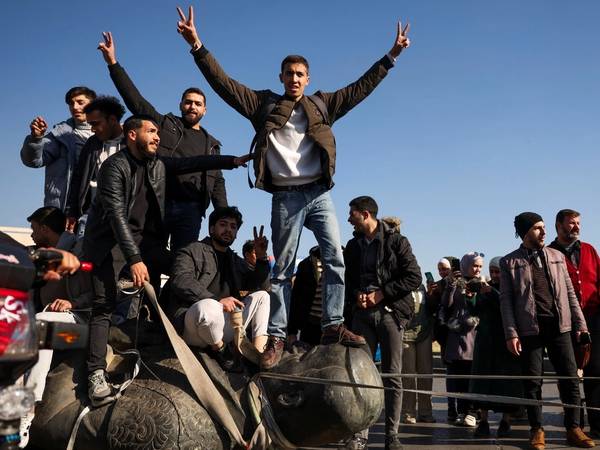The rivalry between regional powerhouses Turkey and Iran has heated up after Ankara emerged as a leading power broker in Syria following the downfall of Tehran's ally President Bashar al-Assad.
Turkish foreign minister Hakan Fidan, in an interview with Saudi-affiliated Al-Hadath on Sunday, reflected on the shift in regional dynamics, saying Iran must better understand its actions following Assad’s downfall.
“I think Iran will also learn lessons in the new period; we need to help Iran in a constructive way,” Fidan said. He outlined Turkey’s vision for the Middle East as one based on cooperation and respect for sovereignty, adding, “We don’t want Iranian domination, Turkish domination or Arab domination. It’s time for us to come together and establish our own interests, our own order in the region, shoulder to shoulder.”
The foreign minister criticized Assad’s inability to reconcile with his people or rebuild Syria, saying, “Either he [Assad] would have to share power with his people and make peace with them, or he would have to share power with external hegemonic forces that supported him against his people.”
Iran, meanwhile, has reacted strongly to Turkey’s growing influence. On Monday, Kayhan, a hardline newspaper aligned with Supreme Leader Ali Khamenei, accused Turkish President Recep Tayyip Erdogan of exploiting Syria’s conflict for his own political ambitions.
In an editorial titled "This neighbor is no longer trustworthy” Kayhan alleged that Erdogan seeks to revive the “Ottoman Caliphate” and warned of potential blowback. “Turkey’s gamble in Syria could ultimately destabilize Erdogan’s own regime, just as it did Assad’s,” the paper claimed.
Kayhan also accused Turkey of being the “stage manager of the crisis” since the civil war began in 2012, claiming Erdogan has prolonged instability to serve Turkish strategic goals.
While Kayhan accused Ankara of orchestrating a crisis in Syria, Fidan suggested that Assad’s reliance on external forces, including Russia and Iran, was part of his downfall.
“Of course, when he [Assad] shared this power with Russia and Iran, they fought together, they couldn’t take the decisions they wanted because each country had different interests," he said. "And after a certain point, when Assad failed to reconcile with his people, to bring back millions of people, to provide services to the people already in Syria, to provide basic services, to provide services to the economy, the system collapsed by itself.”
Tehran’s discontent with Ankara was hinted at earlier in Supreme Leader Ayatollah Ali Khamenei’s speech last week—his first public response to Assad’s ousting.
Though he did not name Turkey, Khamenei referred to a neighboring country as part of what he called a joint American and Israeli plan in Syria. The comments were widely interpreted as a veiled criticism of Turkey’s involvement.
